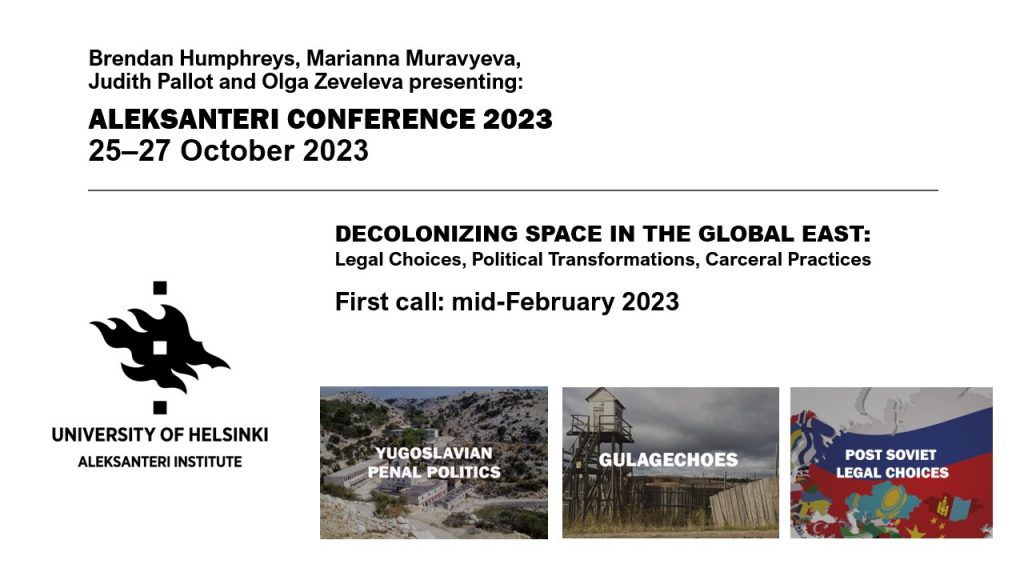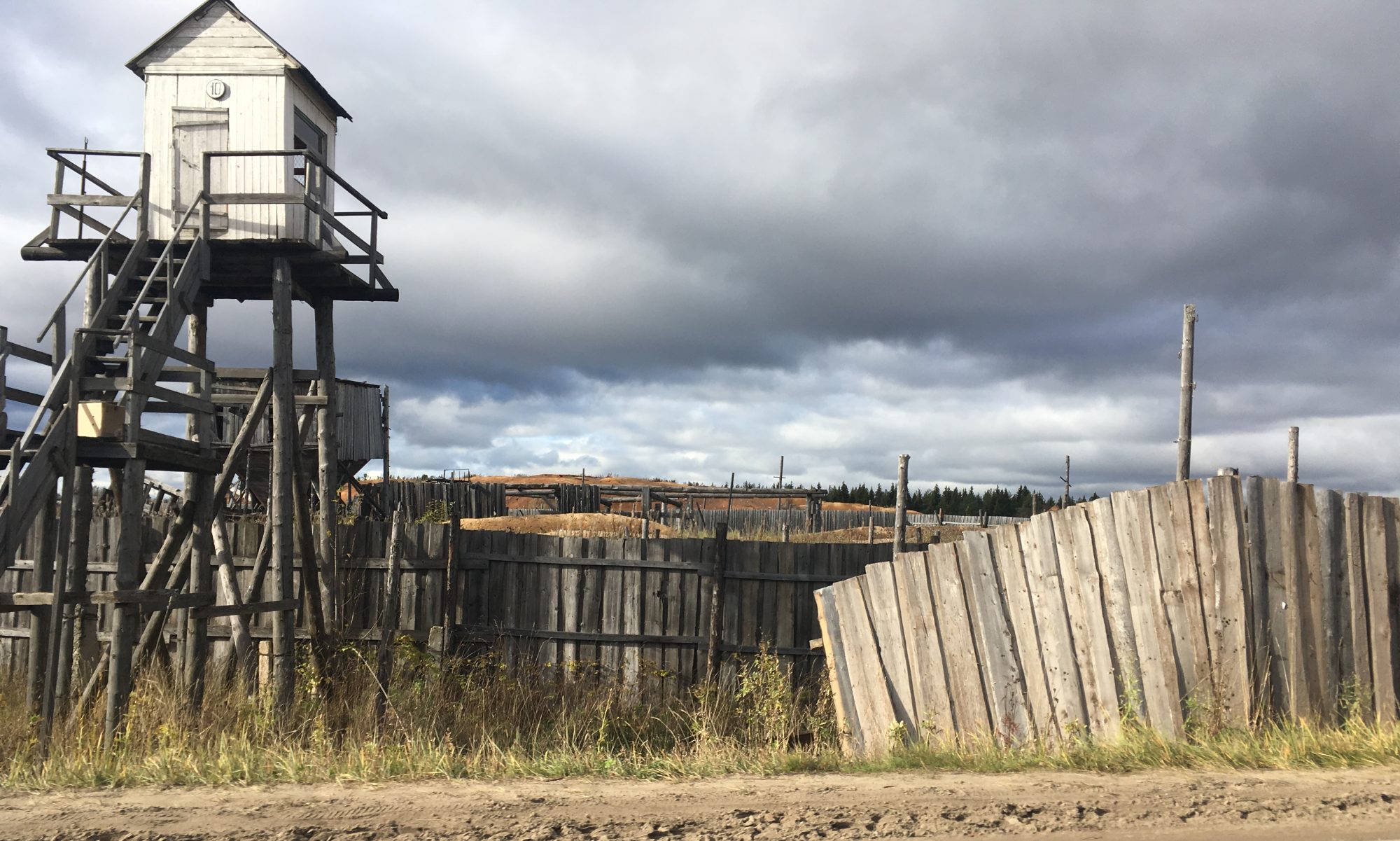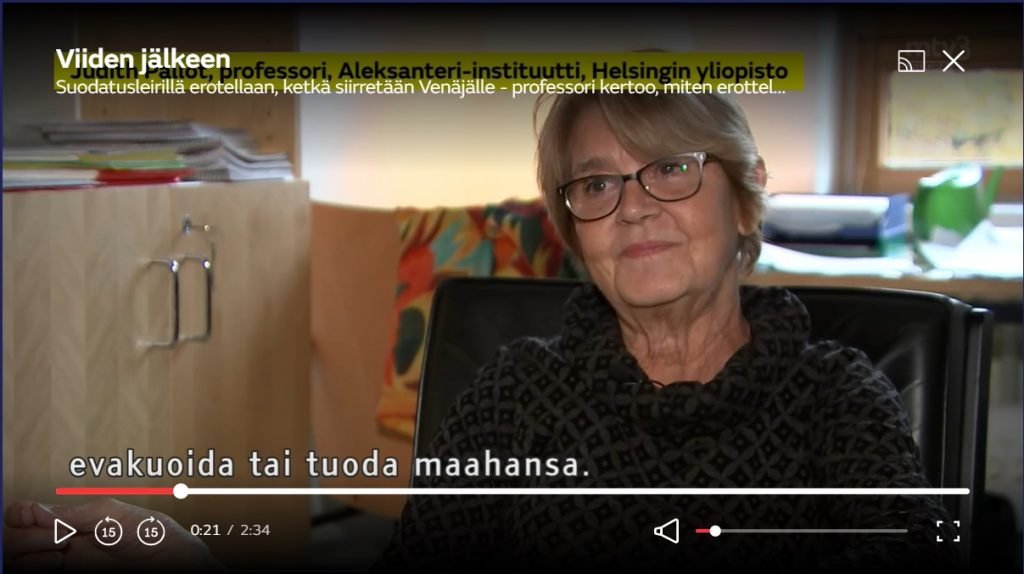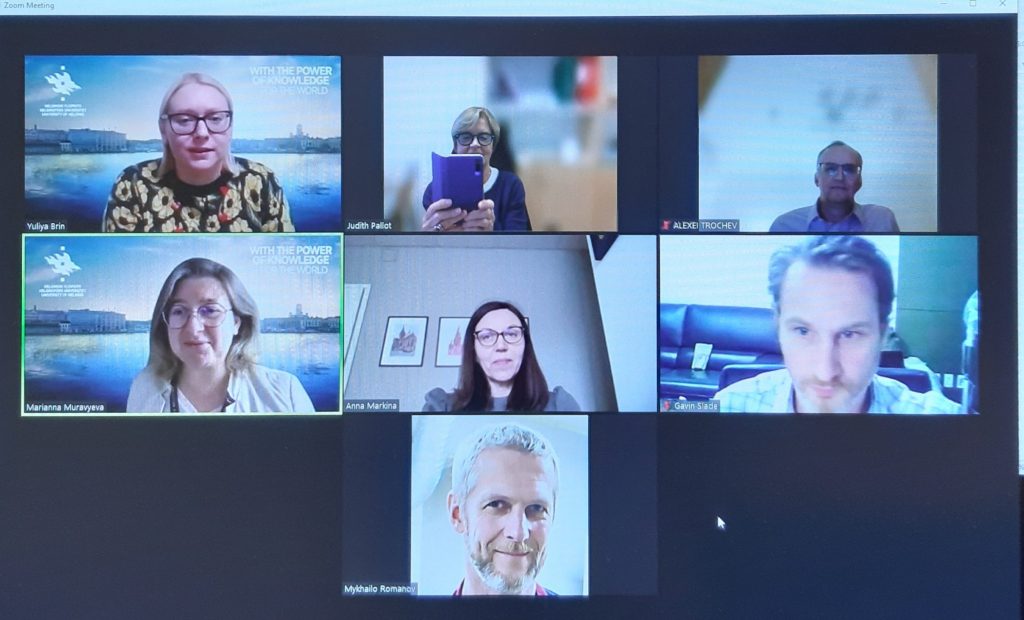The annual Aleksanteri Conference gave members of the GULAGECHOES and YUGOSLAVIAN PENAL NATIONALISM teams the opportunity to present their findings to the broad section of the academic, civil society and foreign affairs community that attended this year’s conference. The theme of the conference arising out of the war in Ukraine was entitled “The New Age of Insecurity”.
The projects organised two panels: “War and Repression. Russia´s War Against Ukraine in Discursive, Comparative and Legal Perspective” and “The Role of Penalty in Post-Community State Formation in Former Soviet and Yugoslavian space”.
The following papers were given by the members of the gulagehcoes team: Mikhail Nakonenchny The rise of Neo-Stalinism, Weaponization of Conspiratorial “folk-history”, and Denial of Atrocities in Ukraine; Olga Zeveleva Ethnicity, Class, and Security in Estonia: Perspectives from the Prison; Lili Di Puppo “Muslims do not submit to anyone except the Almighty”: Islam beyond prison categories in Russia and Costanza Curro The End of the Soviet Union in the Labour Colony of Khoni, Georgia.
For the Academy of Finland project, “The Yugoslavian penal nationalism”, Brendan Humphreys gave the paper Incarceration and Population Expulsion: Patterns from the Balkan and Ukraine Wars and Olga Kantokoski, The Western Balkan Model of Carceral Punishment in the Context of the Penal Programme of Modernity. The PI Judith Pallot’s presentation was Violence and Repression: the Carceral Fate of the Opponents of the War in Ukraine. We were joined on the panels by the project’s guest, international law expert Gleb Bogush and the founder of carceral geography Professor Dominique Moran.



